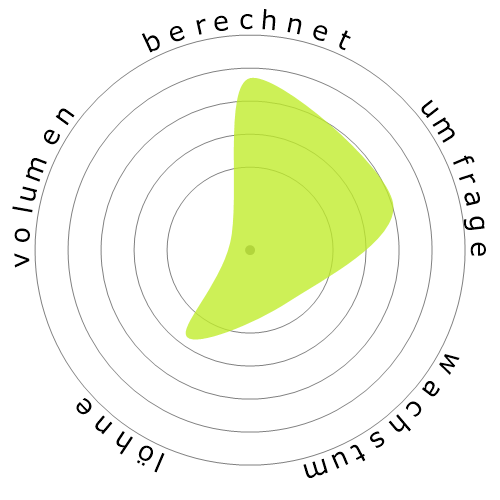Musikdirektoren und Komponisten
Wohin möchten Sie als Nächstes gehen?
Oder erkunden Sie diesen Beruf ausführlicher...


Was zeigt diese Schneeflocke?
Was ist das?
Wir bewerten Jobs anhand von vier Faktoren. Diese sind:
- Chance der Automatisierung
- Jobwachstum
- Löhne
- Anzahl der verfügbaren Stellen
Dies sind einige wichtige Punkte, über die man beim Jobsuchen nachdenken sollte.
Personen haben sich auch angesehen
Berechnetes Automatisierungsrisiko
Geringes Risiko (21-40%): Jobs auf dieser Ebene haben ein begrenztes Risiko der Automatisierung, da sie eine Mischung aus technischen und menschenzentrierten Fähigkeiten erfordern.
Weitere Informationen darüber, was dieser Wert ist und wie er berechnet wird, sind verfügbar hier.
Benutzerumfrage
Unsere Besucher haben abgestimmt, dass es eine geringe Chance gibt, dass dieser Beruf automatisiert wird. Diese Einschätzung wird weiterhin durch das berechnete Automatisierungsrisiko unterstützt, welches eine 21% Chance der Automatisierung schätzt.
Was denken Sie, ist das Risiko der Automatisierung?
Wie hoch ist die Wahrscheinlichkeit, dass Musikdirektoren und Komponisten in den nächsten 20 Jahren durch Roboter oder künstliche Intelligenz ersetzt wird?
Gefühl
Das folgende Diagramm wird angezeigt, wenn genügend Stimmen vorhanden sind, um aussagekräftige Daten zu erzeugen. Es zeigt die Ergebnisse von Nutzerumfragen im Laufe der Zeit und bietet einen klaren Hinweis auf Stimmungstrends.
Gefühlslage über die Zeit (jährlich)
Wachstum
Die Anzahl der 'Music Directors and Composers' Stellenangebote wird voraussichtlich um 2,7% bis 2033 steigen.
Gesamtbeschäftigung und geschätzte Stellenangebote
Aktualisierte Prognosen sind fällig 09-2025.
Löhne
Im Jahr 2023 betrug das mittlere Jahresgehalt für 'Music Directors and Composers' 62.590 $, oder 30 $ pro Stunde.
'Music Directors and Composers' wurden 30,2% höher bezahlt als der nationale Medianlohn, der bei 48.060 $ lag.
Löhne über die Zeit
Volumen
Ab dem 2023 waren 10.770 Personen als 'Music Directors and Composers' in den Vereinigten Staaten beschäftigt.
Dies entspricht etwa < 0,001% der erwerbstätigen Bevölkerung im ganzen Land.
Anders ausgedrückt, ist etwa 1 von 14 Tausend Personen als 'Music Directors and Composers' beschäftigt.
Stellenbeschreibung
Leiten, dirigieren, planen und führen Sie instrumentale oder vokale Aufführungen von Musikern oder Gruppen durch, wie zum Beispiel Orchester, Bands, Chöre und Gesangsvereine; oder kreieren Sie originale Musikwerke.
SOC Code: 27-2041.00
Kommentare (31)
This is without taking into account all of the interpersonal elements of composition, which are also not well understood by people who don't do this work.
Finally, given that humans are subject to copyright law and that the level of imitation and inspiration from previous works is controlled and limited by these laws, it is unlikely that music created by AI that was not drastically reshaped by a human composer would avoid copyright lawsuits or be subject to copyright itself, as current technology in this field only knows how to aggregate and make stylistic choices based on probability. A human composer is not going to waste time fiddling with AI compositions to "get them there" when they could just write something themselves.
Show me an evangelist who actually produces music and isn't heavily invested in AI themselves in some way, and I'll reconsider.
Auf Kommentar antworten